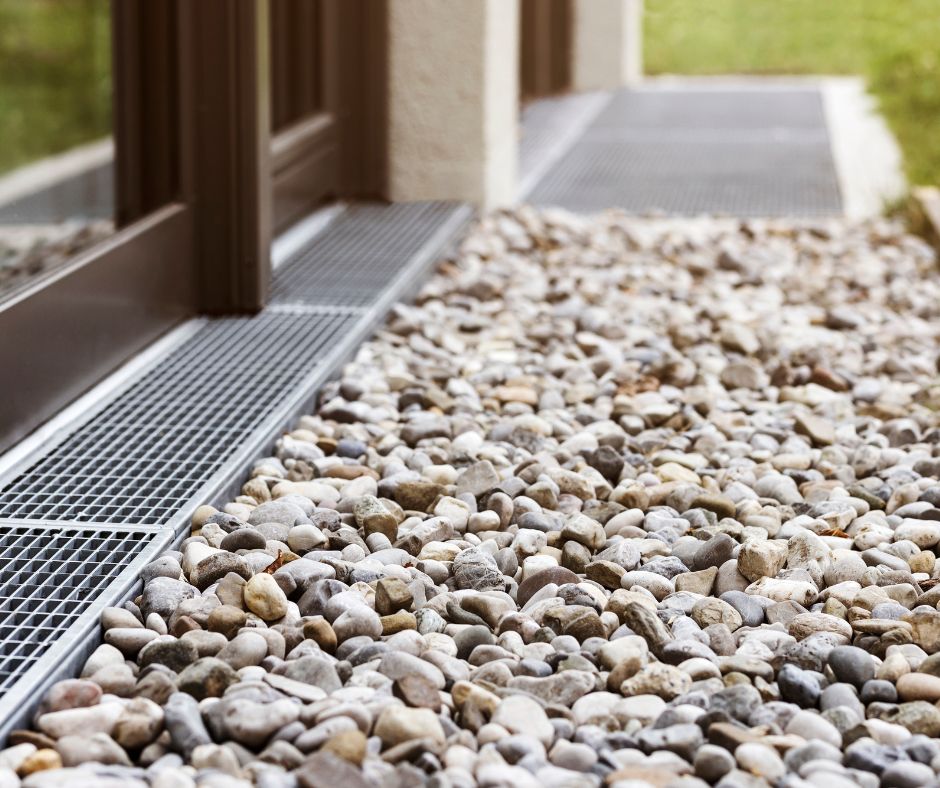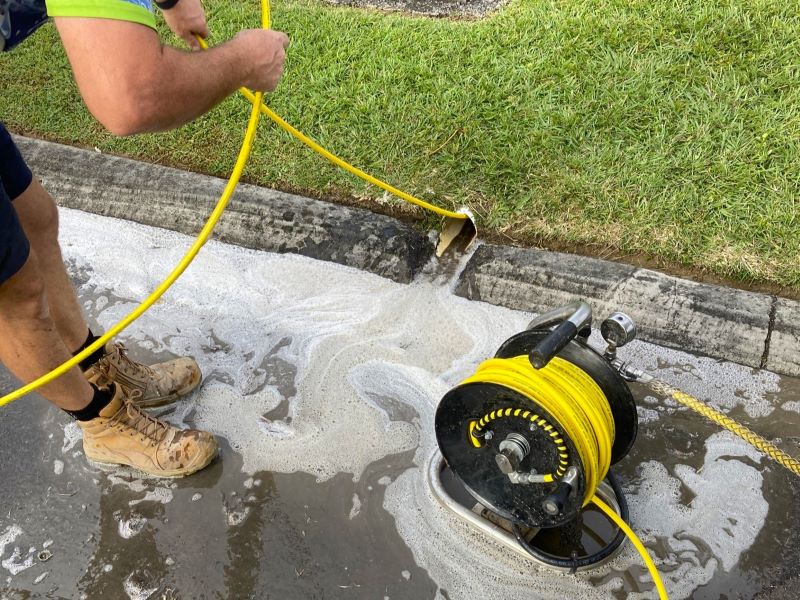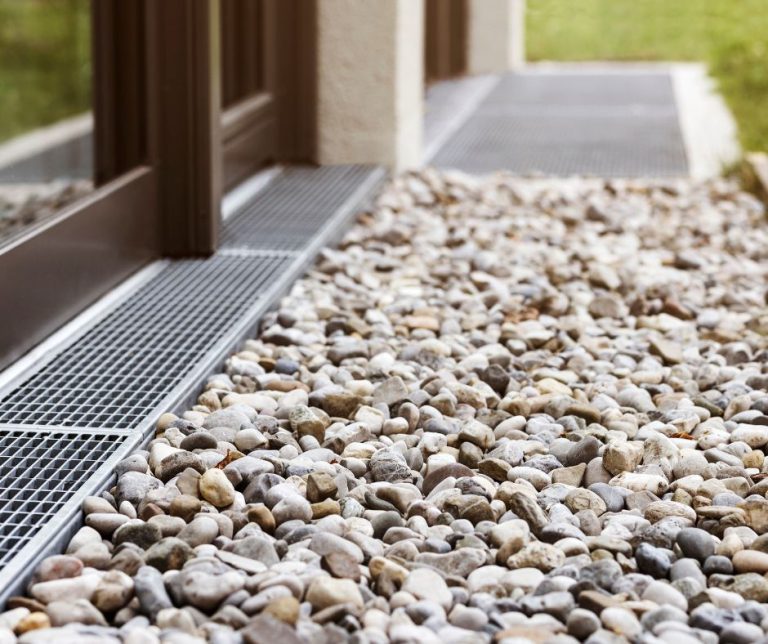Stormwater drainage systems are made up of crucial components including roof plumbing drainage, French drains, spoon drains, and strip drains. These elements are essential for preventing water damage and managing stormwater runoff effectively. It’s vital to conduct regular maintenance on these systems, as neglect can lead to serious issues such as drain blockages and potential flooding. Whether you are facing clogged grates, invasive roots in your pipes, or damaged plumbing, taking proactive maintenance measures can prevent future headaches and costly repairs. Ensuring these systems remain operational is key to maintaining a safe and dry environment around your property, safeguarding both your home and landscape from the adverse effects of stormwater accumulation.
This comprehensive guide outlines how to keep your drainage systems functioning optimally and provides actionable steps to take when you encounter blockages.

Effective Maintenance Techniques for Your Traditional Stormwater Drainage Systems
Traditional stormwater drains are essential for most properties, effectively redirecting rainwater away from structures to prevent flooding. However, over time, these systems can become obstructed by various debris, such as leaves, dirt, and branches, significantly impeding their functionality. Therefore, establishing a routine for regular upkeep is crucial to ensure that water flows freely and does not accumulate near your home’s foundation, which could lead to severe structural issues. By implementing a consistent maintenance schedule, you can enhance the lifespan and performance of your drainage systems, particularly during heavy rainfall, ensuring your home remains protected from potential water damage.
Practical Tips for Caring for Traditional Drains:
- Regularly Clear Grates and Gutters: Accumulated leaves and debris can significantly impede water flow, making it essential to remove any buildup consistently, particularly after storms. This proactive approach can prevent more significant issues down the line.
- Monitor for Pooling Water: Be vigilant for signs of water backing up or pooling near your drains, as this could indicate a blockage. Additionally, check for boggy areas in your garden, which may signal underlying drainage issues that require immediate attention.
- Engage Professional Help: Schedule routine inspections and cleanings with a qualified plumber like Creek to Coast to ensure your drains operate at peak efficiency, allowing you to proactively avoid potential problems before they escalate.
Key Practices for Maintaining French Drains Effectively
French drains are specifically designed to redirect groundwater away from your home and retaining walls, making them highly effective for managing moisture. However, these underground systems require regular care to remain free from blockages. French drains utilize a combination of gravel and perforated pipes to facilitate water diversion, but they can become clogged over time due to dirt, sediment, and root infiltration. Proper maintenance of these systems is crucial to ensure their longevity and efficiency, preventing unwanted water accumulation around your property that could lead to damage.
Essential Maintenance Tips for French Drains:
- Watch for Slow Drainage: If water is not draining as expected, it may indicate a clog within your French drain system that needs immediate attention to avoid further complications and potential damage to your property.
- Regularly Flush the System: Periodically running water through the drain can help clear potential blockages before they develop into significant issues, ensuring your system remains functional.
- Seek Professional Cleaning Services: If you notice sediment buildup or root intrusion, contact Creek to Coast for thorough cleaning, potentially using hydro-jetting tools to clear the pipes or inspection points effectively, restoring optimal performance.
Best Practices for Spoon Drain Maintenance and Care
Spoon drains consist of shallow, curved channels designed to efficiently guide surface water away from driveways, patios, and other paved areas. While they are generally low-maintenance, it is important to attend to them regularly to prevent clogging. Neglecting these channels can result in water pooling on your property, leading to potential damage over time. By adopting simple yet effective maintenance habits, you can ensure that your spoon drains remain practical and operational, effectively managing water flow and safeguarding your property.
Practical Strategies for Spoon Drain Maintenance:
- Regularly Remove Debris: Sweeping out leaves, dirt, rocks, or rubbish will help maintain smooth water flow. A high-pressure washer can be particularly effective for thorough cleaning when necessary.
- Check the Drainage Slope: Since spoon drains rely on gravity to direct water, ensure the slope is intact and functioning as intended to promote effective drainage and prevent pooling of water.
- Inspect for Structural Damage: Regularly check the drain for cracks or breaks, as they are often subjected to vehicle traffic, which can compromise their integrity over time and lead to more significant issues.
- Professional Assessment: If you notice that water is not draining properly, it may be time to call Creek to Coast for a professional evaluation. Their expertise will help you make necessary adjustments or repairs to restore optimal drainage and protect your property.
Essential Steps for Efficiently Maintaining Linear Drains
Linear drains, also known as trench drains, are strategically installed in areas such as driveways and pool decks to effectively capture surface runoff. While they excel at preventing water accumulation, they can gather debris over time, necessitating periodic cleaning to maintain their functionality. Regular maintenance is essential to ensure that these drains remain unobstructed, as any blockage can lead to water pooling and potential damage to surrounding areas. By establishing a consistent cleaning routine, you can enhance the performance and longevity of your linear drainage systems, ensuring they effectively manage stormwater.
Linear Drain Care Tips:
- Frequently Clean Grates: Monitor the grates for any buildup of dirt, leaves, or debris that could obstruct the drain’s flow and remove these blockages regularly to ensure optimal performance.
- Flush the System Regularly: Routinely running water through the drain will help ensure it flows correctly and that no blockages are present that could hinder drainage and lead to water pooling.
- Engage Professional Maintenance: If you experience backups or slow drainage, don’t hesitate to contact Creek to Coast for expert cleaning services to remove deep clogs and debris effectively, restoring your system’s functionality and preventing further issues.
Immediate Actions to Take When Facing Blocked Drains
Despite your best maintenance efforts, blockages can still occur in any drainage system. Signs such as water pooling, slow drainage, or overflowing grates indicate that immediate action is required to prevent more severe issues from developing. Understanding the common causes of blockages can assist you in identifying the problem and taking the necessary steps to resolve it effectively, ensuring your drainage systems operate efficiently and protecting your property from water damage.
Common Causes of Blockages:
- Tree Roots: Roots can infiltrate underground pipes, leading to significant blockages that disrupt water flow and require prompt attention to prevent further complications.
- Debris Buildup: Leaves, dirt, and other environmental materials can accumulate over time, obstructing the passage of water through your drainage system and leading to potential overflow.
- Pipe Damage: Broken or squashed pipes can severely restrict water flow and necessitate immediate professional intervention to correct the issue and restore proper drainage.
When faced with a blockage, it’s advisable to seek assistance from a professional plumber like Creek to Coast. They utilize advanced tools such as high-pressure water jetters and CCTV cameras to accurately diagnose and remedy the issue effectively. Attempting to resolve a blockage independently can exacerbate the problem significantly, especially if the pipes are already damaged or roots have infiltrated the system.

Comprehensive Strategies for Maintaining All Varieties of Stormwater Drainage Systems
To ensure that your stormwater management systems—whether they are traditional, French, spoon, or linear drains—continue to function effectively, consider implementing the following comprehensive strategies:
- Schedule Annual Inspections and Cleanings: Partner with a licensed plumber like Creek to Coast for proactive maintenance. This approach helps remove debris and identify potential issues before they escalate into serious problems, saving you time and money.
- Monitor Water Flow: After heavy rainfall, inspect your drains for signs of pooling or slow drainage, which may indicate underlying problems that require immediate attention to prevent future water damage.
- Install Gutter Guards and Grates: These installations can prevent larger debris from entering your drains, thereby reducing the frequency of blockages and enhancing overall efficiency of your drainage systems.
- Maintain Distance Between Vegetation and Drains: Roots from nearby trees can invade and obstruct pipes, so ensuring a safe distance between plants and your stormwater system is essential for optimal performance and longevity.
Regular plumbing maintenance and prompt responses to drainage issues are vital for protecting your property from water damage while ensuring your drainage systems operate efficiently. If you detect any signs of blockage, do not hesitate to contact Creek to Coast for expert assistance in keeping your stormwater drains flowing smoothly and effectively!
The Article: Stormwater Clarity: Essential Drain Maintenance Tips first appeared on https://writebuff.com.





It’s interesting how often we overlook the importance of stormwater drainage systems until an unexpected downpour reminds us of their value. I’ve noticed that after heavy rains, my neighborhood experiences localized flooding, and it has made me appreciate the role these systems play in protecting our homes and community.
It’s striking how often we take stormwater drainage systems for granted until they’re put to the test. Your experience with localized flooding really highlights how crucial these systems are for our neighborhoods. It’s not just about protecting homes but also about maintaining the overall quality of life in our communities.
It’s true, we often overlook stormwater drainage systems until they’re really put to the test, and then it becomes painfully clear just how critical they are. I remember when heavy rains hit my neighborhood a couple of years ago—it was eye-opening to see how quickly things could turn chaotic. The water levels rose so fast, and it kind of makes you appreciate all the behind-the-scenes engineering that goes into these systems.
It’s interesting how experiences like yours can really shift our perspective. Those heavy rains can act as a wake-up call, can’t they? The way the water can rise so quickly shows just how vulnerable we are—especially in areas where the stormwater infrastructure might not be up to the task. It’s a reminder that all those pipes and drains we often take for granted are doing a big job, often silently.
You’re spot on! It’s wild how quickly a storm can change everything. Those heavy rains really put the spotlight on how much we rely on stormwater drainage without giving it a second thought. I’d love to hear more about what you saw during that event—were there any specific features in the drainage system that stood out to you?
You’ve highlighted such an important aspect of home maintenance that often gets overlooked! I remember when I moved into my first house, I had no idea how crucial stormwater management was until a heavy rain exposed some drainage issues. It was a real wake-up call seeing the water pooling near the foundation.
Your exploration of stormwater drainage systems underscores their overlooked yet pivotal role in urban infrastructure. I’ve personally witnessed the consequences of neglected drainage systems, particularly in neighborhoods that face heavy rainfall. The blockage in one case led to significant flooding, damaging homes and fomenting community stress.
It’s eye-opening to hear about your firsthand experience with stormwater drainage issues. Those moments of heavy rainfall can transform from a regular weather event into a crisis that impacts our homes and communities. The reality of damaged property and rising stress levels really brings to light how vital a well-maintained drainage system is.
It’s striking how firsthand experiences, like yours, highlight the sometimes-hidden issues surrounding stormwater drainage. When it rains heavily, those drainage systems really do become the unsung heroes—or, in cases of neglect, the overlooked villains. The consequences can ripple through whole communities, transforming streets into rivers.
You raise an important point about the consequences of neglected stormwater drainage systems. Your firsthand experience highlights a reality many of us may often overlook – that the implications of poor drainage go far beyond just inconvenience. The combination of heavy rainfall and inadequate drainage can truly uproot lives, impacting not only the physical structures of our neighborhoods but also the very fabric of community life.
Your insights on the importance of stormwater drainage systems resonate strongly, particularly given the increasing frequency of intense weather events due to climate change. I’ve often observed how communities with neglected drainage systems face not only property damage but also public health risks, as stagnant water can lead to vector-borne diseases.
You’ve raised some critical points regarding stormwater drainage systems and their role in protecting communities from the adverse effects of climate change. It’s disheartening to see how quickly some areas can fall victim to worsening weather patterns, especially when their infrastructure isn’t up to par. Neglecting these systems often leads to a cascade of problems that not only affect properties but also public health.
Your insights into stormwater drainage systems truly highlight their importance, not just for preventing water damage, but also for protecting our broader environment. I’ve noticed in my neighborhood how often clogged drains lead to localized flooding, which can disrupt not only our properties but also public infrastructure. It makes me think about the interconnectedness of our urban landscapes and how poorly maintained systems can have a ripple effect.